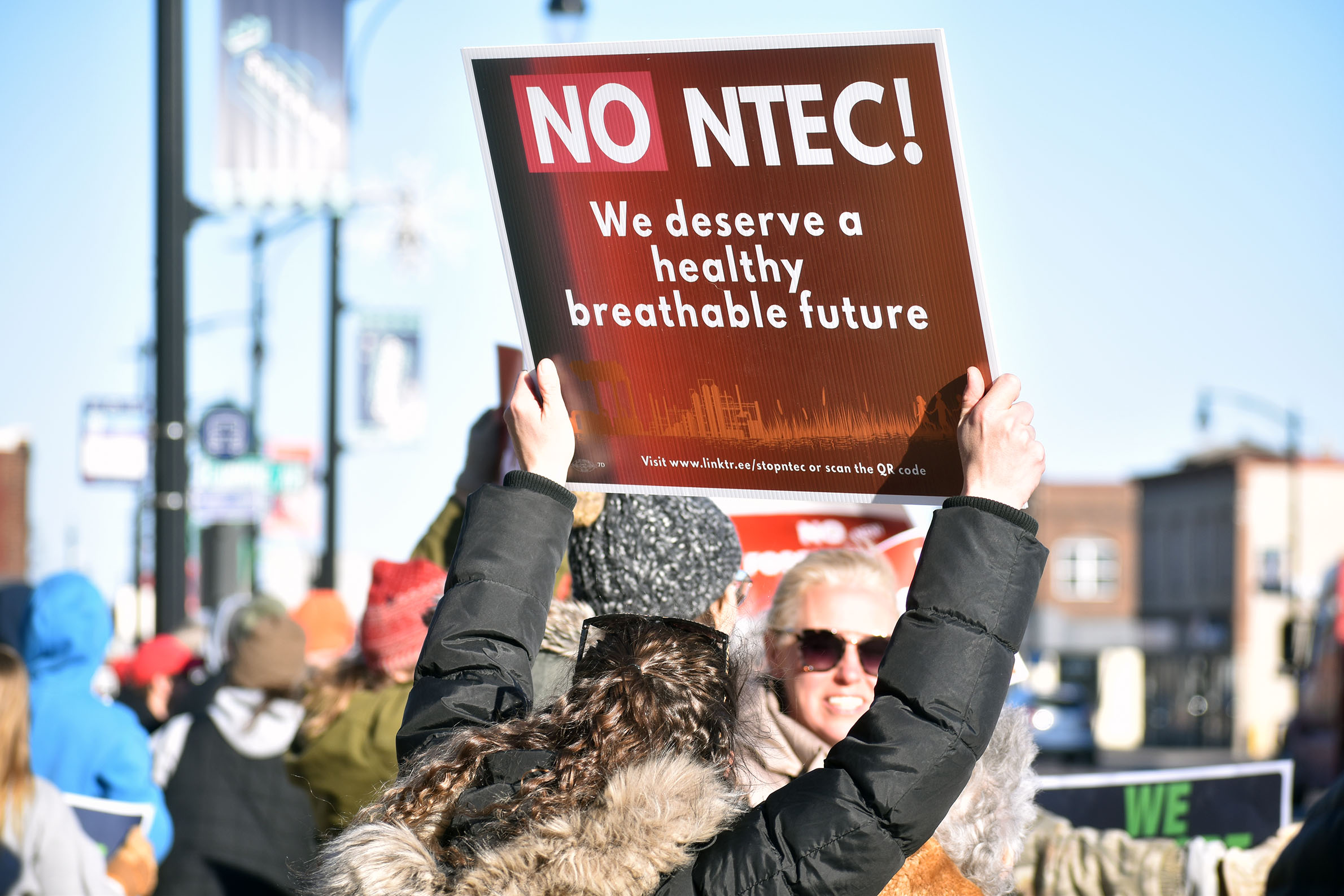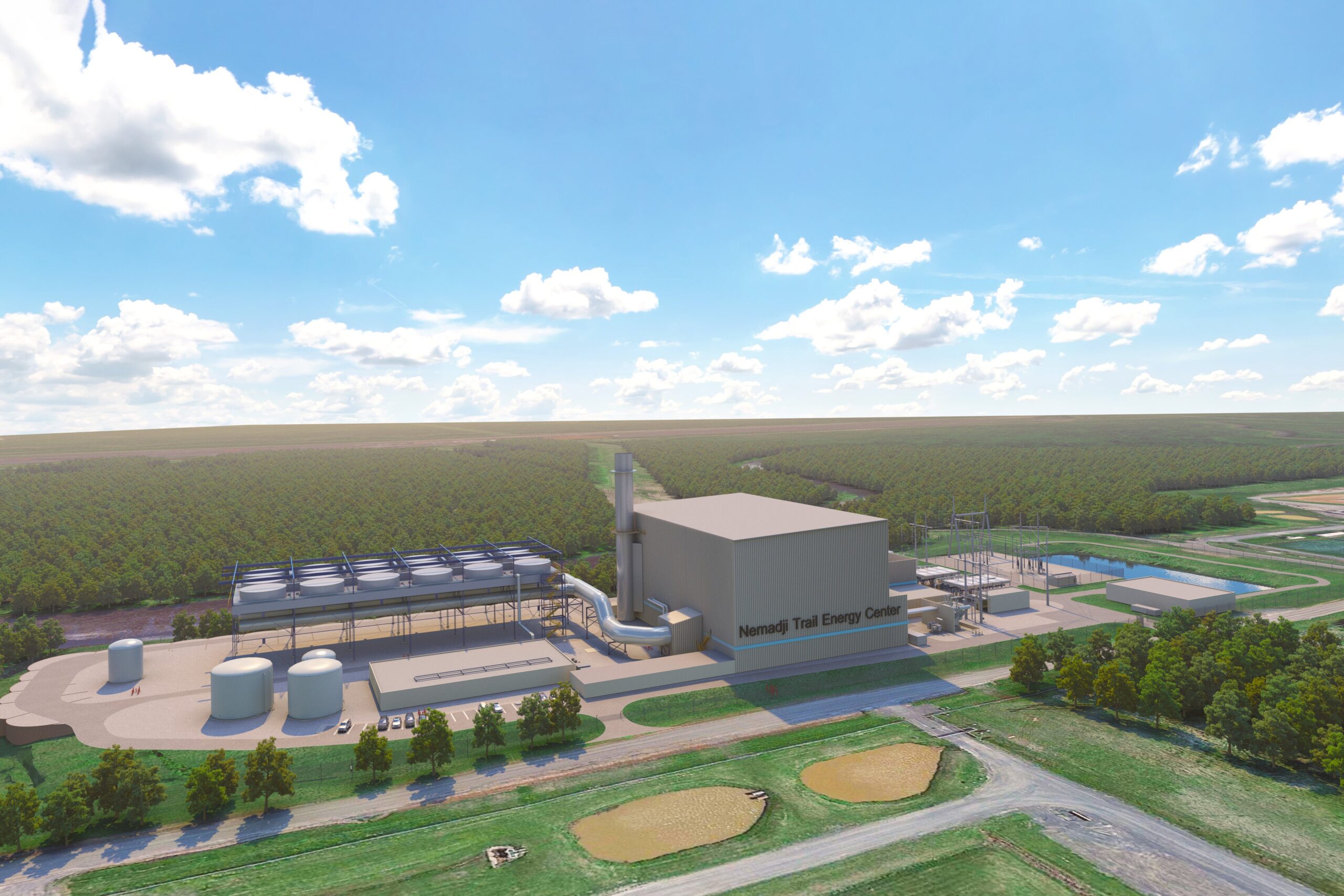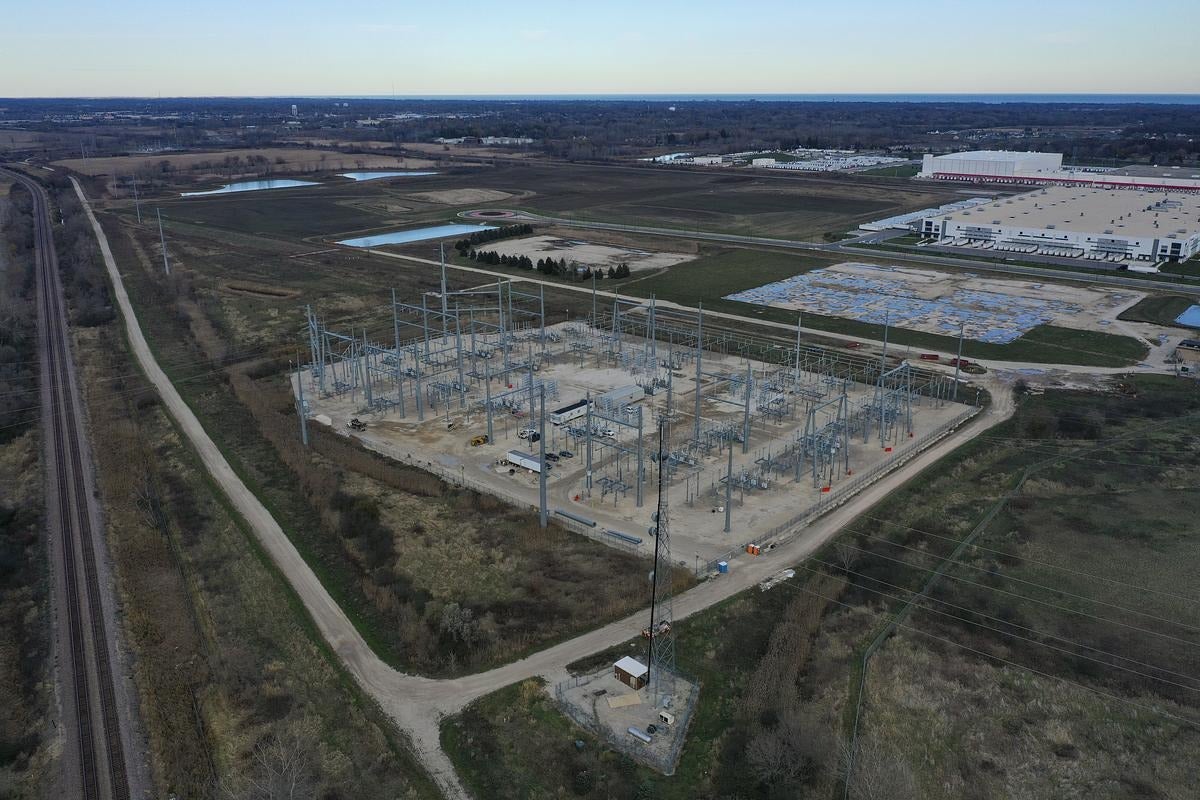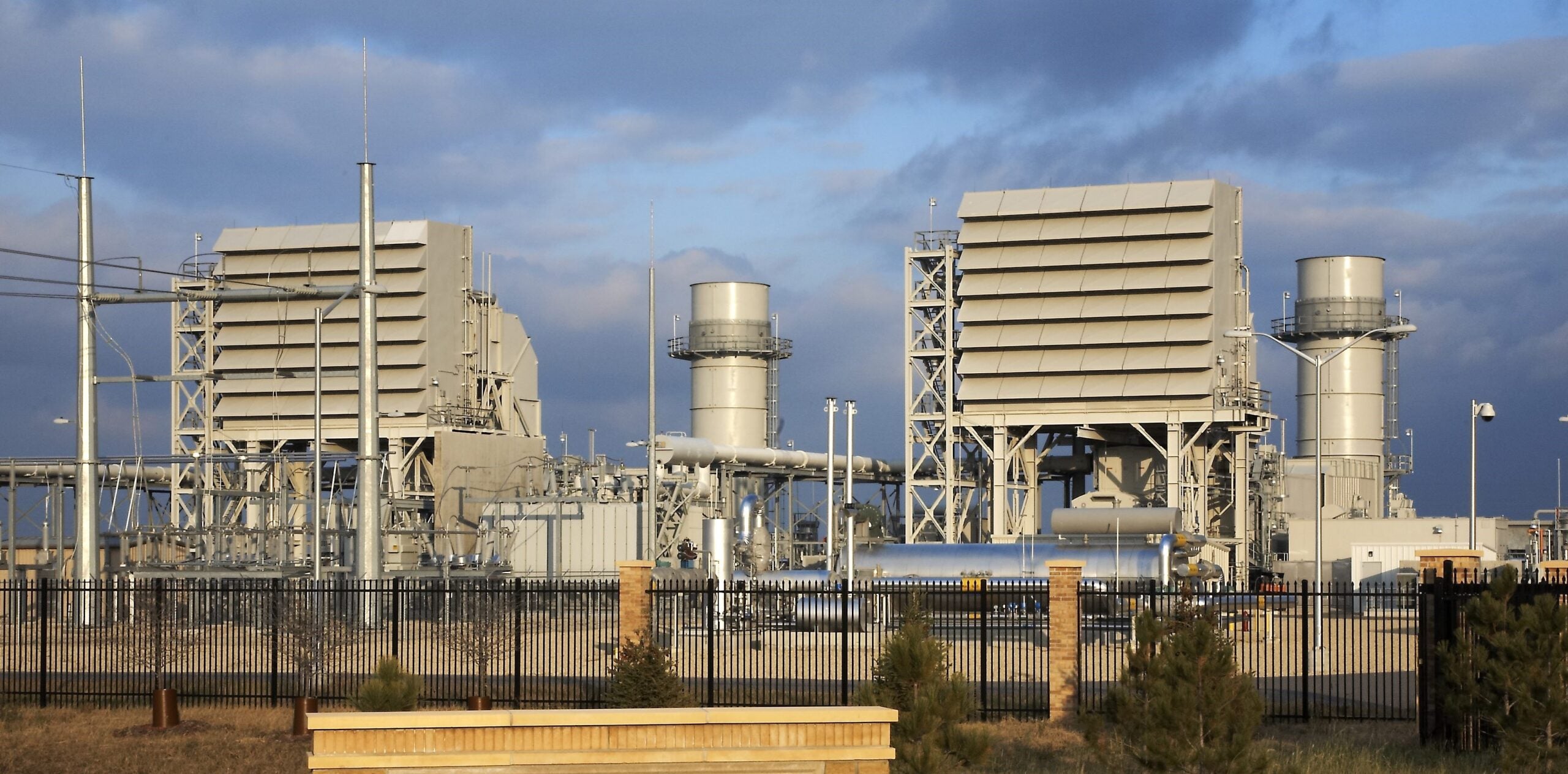Superior leaders are bracing for a legal challenge after its planning commission recommended the city deny local approvals for a nearly $1 billion natural gas plant there.
An attorney for one of the project’s owners told the commission that utilities can move forward without the city’s blessing.
The Superior City Council, some of whose members have signaled opposition to the plant, will have the final say on local approvals for the proposed Nemadji Trail Energy Center, or NTEC. Several utilities want to build the 625-megawatt plant to maintain reliable and affordable power as they shift from coal to renewable energy, including Minnesota Power in Duluth.
Minnesota Power requested the city vacate streets and change zoning to allow the project to move forward. Even so, Justin Chasco, an attorney for the utility, said it can build the plant without any zoning changes because the Wisconsin Public Service Commission has already approved the project.
“Wisconsin law is crystal clear that when that determination has been made, the city has no power to undo it,” Chasco said.
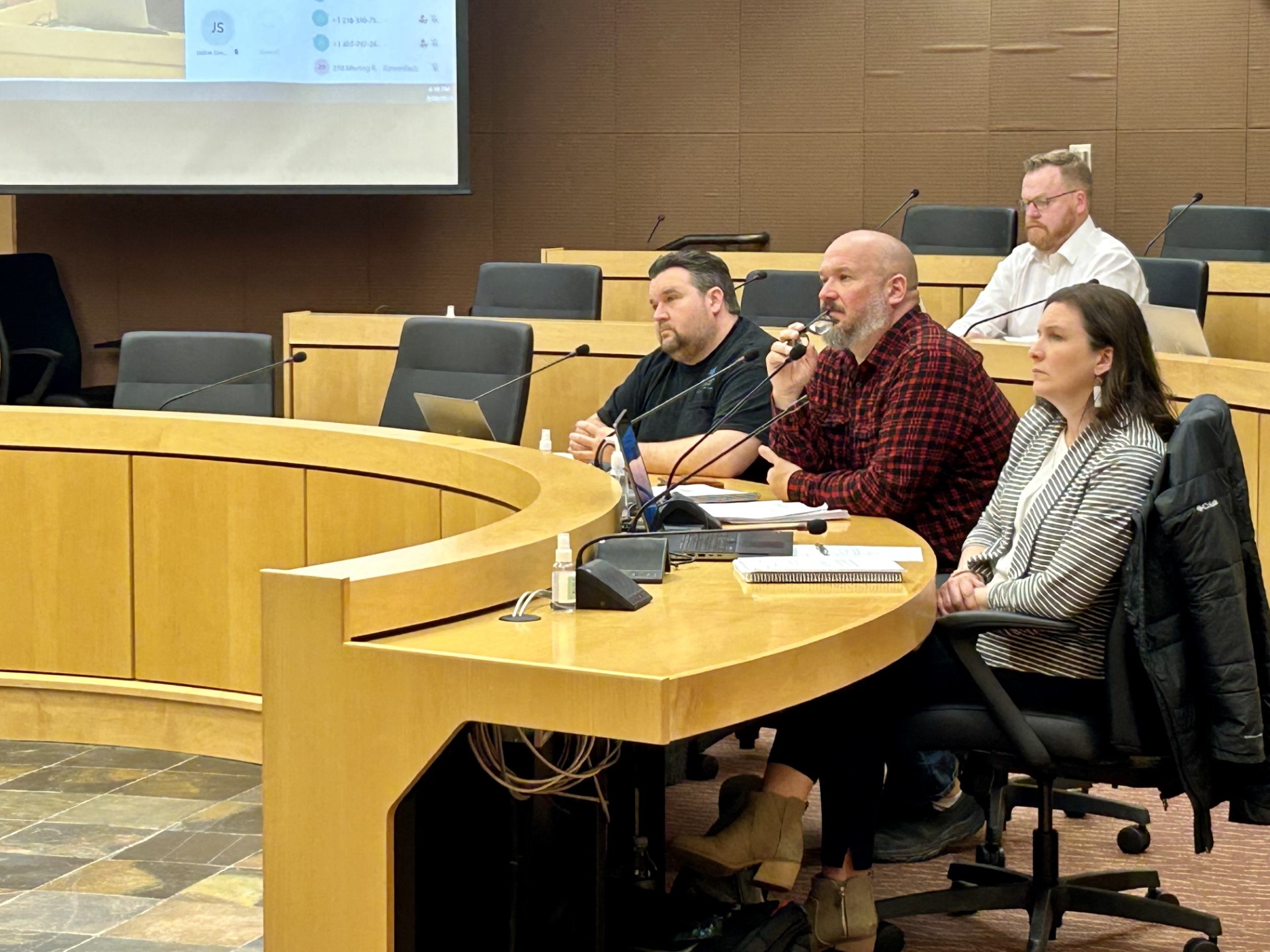
Utilities argue state law overrides local authority
News with a little more humanity
WPR’s “Wisconsin Today” newsletter keeps you connected to the state you love without feeling overwhelmed. No paywall. No agenda. No corporate filter.
State law says no local ordinance can prevent or hinder construction when the PSC has issued power plants a certificate to build — and the project received approval from the state in 2020. The planning commission voted 4-2 in opposition to the utility’s requested changes. Shortly before its vote Wednesday night, Superior Mayor Jim Paine said he didn’t appreciate veiled or direct threats, adding he expects the utility to respect any final decision.
“If it’s not, I cannot be bullied out of that. We will see you in court,” Paine said. “I’m not afraid to defend the decisions of the city or its governing bodies.”
Paine told WPR the city is prepared for any legal challenge. He said he doesn’t expect the city council to take up the commission’s recommendation until sometime in May. If the council denies local approvals for the project, Minnesota Power spokesperson Amy Rutledge said the utility has “legal remedies” it could pursue.
First proposed seven years ago, Minnesota Power now estimates it may cost nearly $1 billion to build the plant with co-owners La Crosse-based Dairyland Power Cooperative and Basin Electric Power Cooperative in North Dakota.
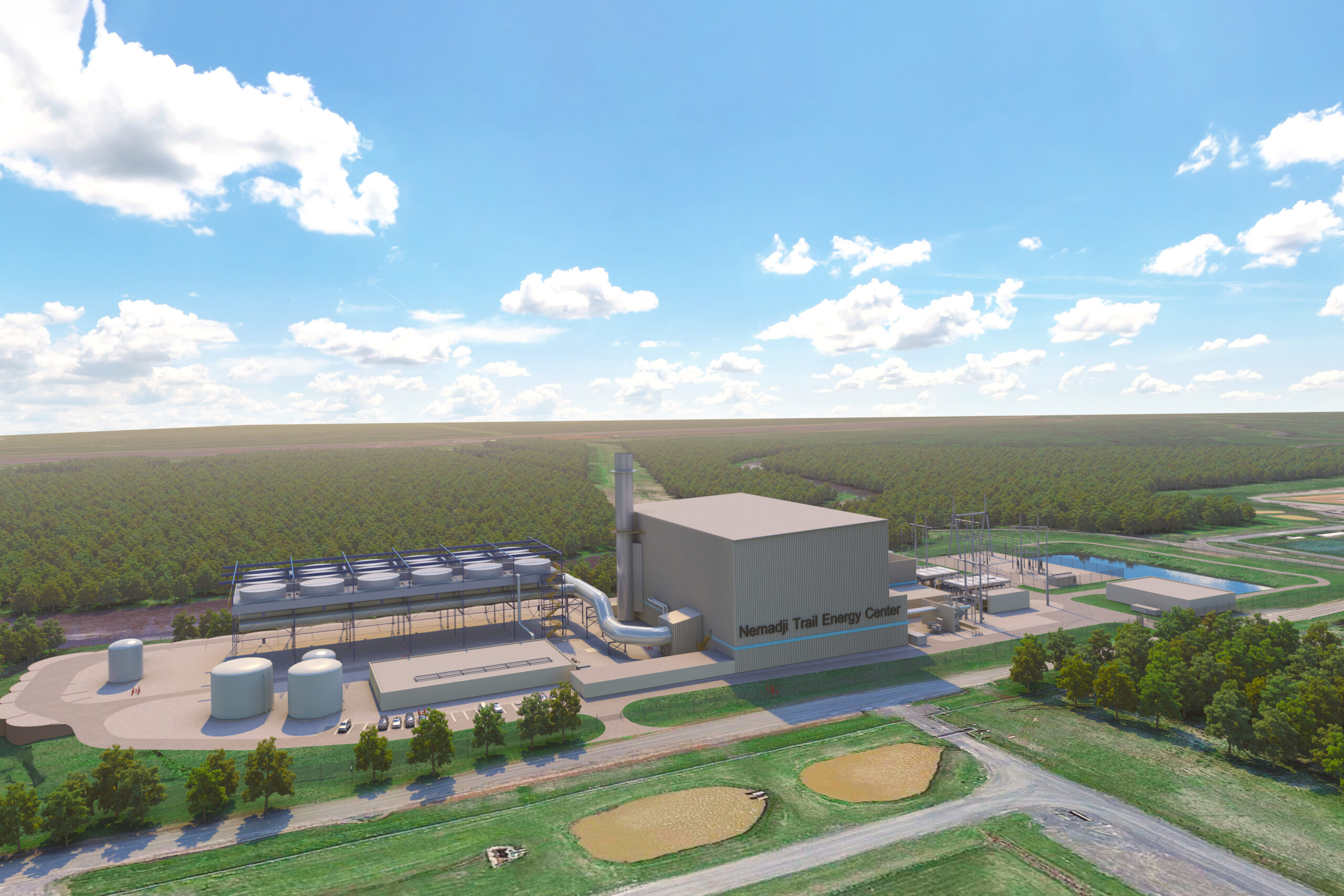
Opponents say the plant will harm public health and the environment
Around 100 supporters and opponents crowded into the city council chambers on Wednesday, overflowing into the hallway and a nearby room. Lynn Wohlwend, a member of Neighbors Against NTEC, argued it would create harmful noise, air pollution and lower property values in the immediate area.
“It takes away access to parts of the Nemadji River. There is going to be a huge retaining wall to support this huge facility on an unstable bluff,” Wohlwend said. “It will also make biking, walking and running in the 3-mile zone around the plant dangerous for infants, children and people with asthma or other respiratory ailments.”
Local physicians and health professionals from Healthy Climate Wisconsin and the Sierra Club stressed there’s no safe level of pollution from fossil fuel plants, which disproportionately harm communities of color, children and the elderly. They said the natural gas plant would contribute to harmful emissions of greenhouse gases and soot pollution, raising the risk of heart attacks and strokes among those living nearby.
A final environmental review found the project wouldn’t pose significant environmental harm. Even so, the plant is expected to produce 2.7 million tons each year in greenhouse gas emissions mostly from carbon dioxide, as well as methane and nitrous oxide. The findings from the federal Rural Utilities Service also state the plant would reduce emissions by about 800,000 tons each year by replacing coal plants elsewhere.
Randy Nevala and his wife Karen live in the city’s East End neighborhood near the site of the proposed plant. He said he thinks the project will make people think twice about moving to Superior.
“We need people, not power plants,” Nevala said.
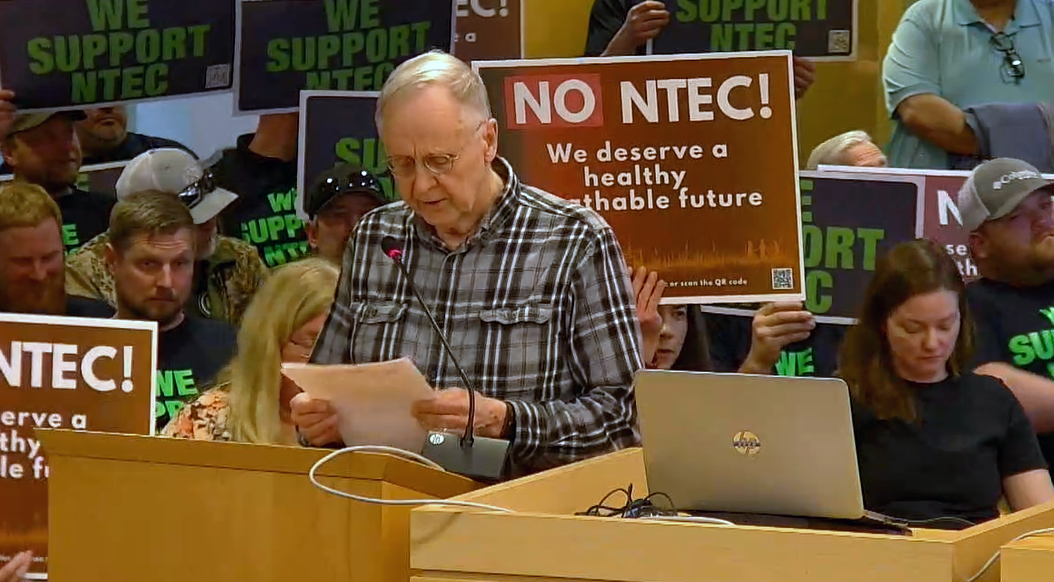
Backers say plant creates jobs and supports clean energy transition
Utilities and their engineering consultants dispute the project would be unsafe, including Jennifer Cady, vice president of regulatory and legislative affairs for Minnesota Power.
“There is no better alternative,” Cady said. “The site is suitable for construction, and there is no impact to public health.”
Representatives of local labor unions, the Duluth and Superior Chambers of Commerce, business advocates and Canadian energy firm Enbridge touted the project’s benefits.
“The support of local leaders in Superior and Douglas County is critical for the future growth of industry, economic development and energy reliability in the community,” said Laura Bridell, Enbridge’s community engagement manager.
Some opponents questioned whether Enbridge may benefit from the plant. Ron Franz with Dairyland Power told WPR a roughly 7-mile natural gas pipeline built as part of the project would connect to TransCanada’s Great Lakes pipeline system.
The plant’s supporters also touted the 350 construction jobs and 25 full-time jobs that would be created with the project along with the contribution of $1 million annually in tax revenues.
Kyle Bukovich, president of the Northern Wisconsin Building & Construction Trades Council, took issue with city leaders like Paine who have withdrawn their support for the plant after initially backing the project.
“This would negatively impact the credibility of the city of Superior, who advocated for this development for years,” Bukovich said. “No one wants to invest in a city that conducts business this way.”
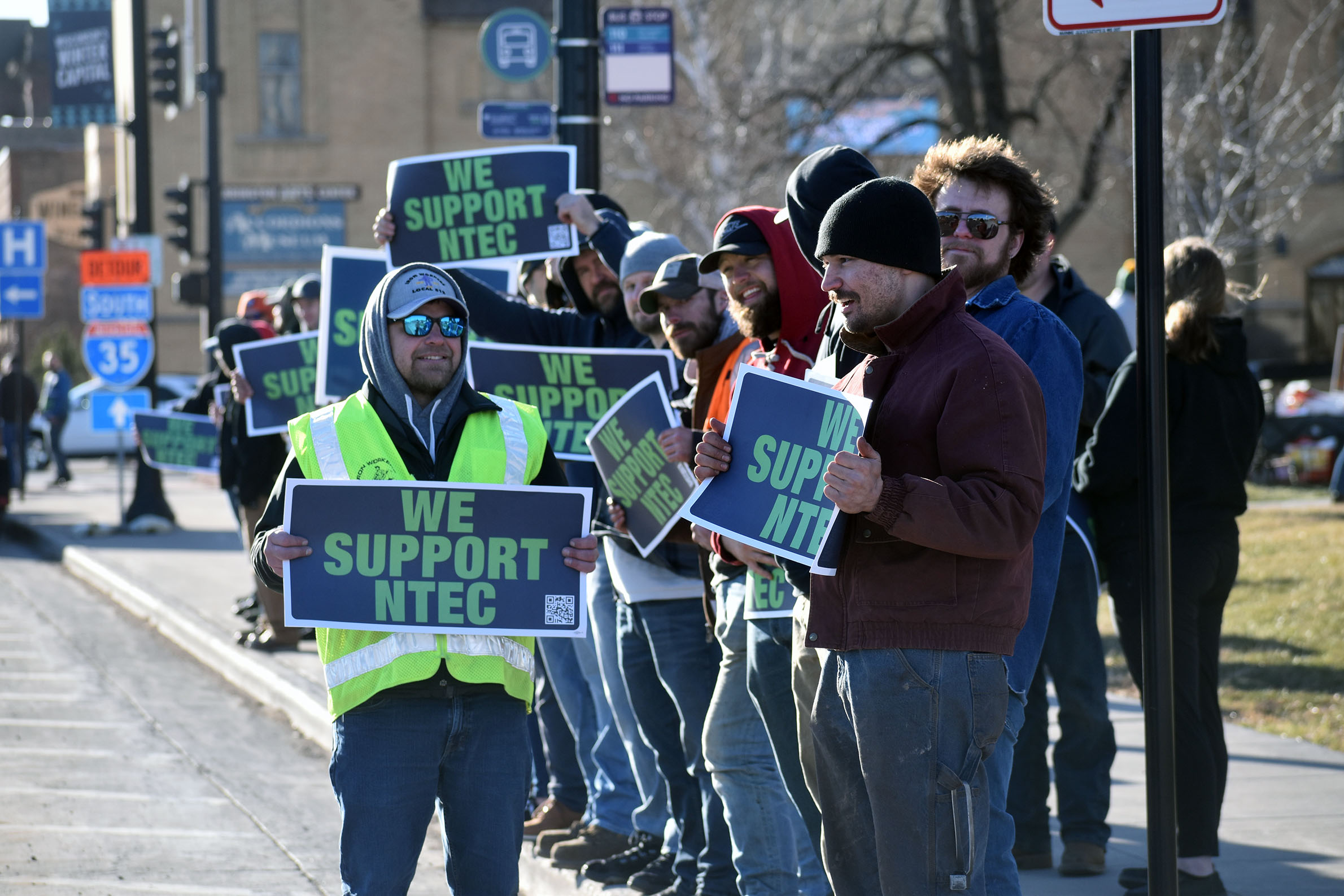
Lake Superior tribes fear plant would disturb remains of tribal ancestors
Meanwhile, Lake Superior tribes have voiced their opposition to the plant, including the Red Cliff and Fond du Lac Bands of Lake Superior Chippewa. The Fond du Lac tribe urged the city to deny the utility’s request to change zoning for the project. In a letter, the tribe’s historic preservation officer expressed concerns about the project’s effects on a mass grave at St. Francis Cemetery in Superior.
More than 100 years ago, remains of around 200 of the tribe’s ancestors were removed from Wisconsin Point on Lake Superior and reburied at the cemetery to make way for an ore dock that was never built. The tribe said the plant has the potential to further disturb those remains and contribute to erosion on the river.
The debate over the plant has begun to boil over in Superior as dozens of opponents and supporters of the plant demonstrated Tuesday outside the Douglas County Courthouse in Superior. They also packed the city council chambers on Tuesday night ahead of the vote.
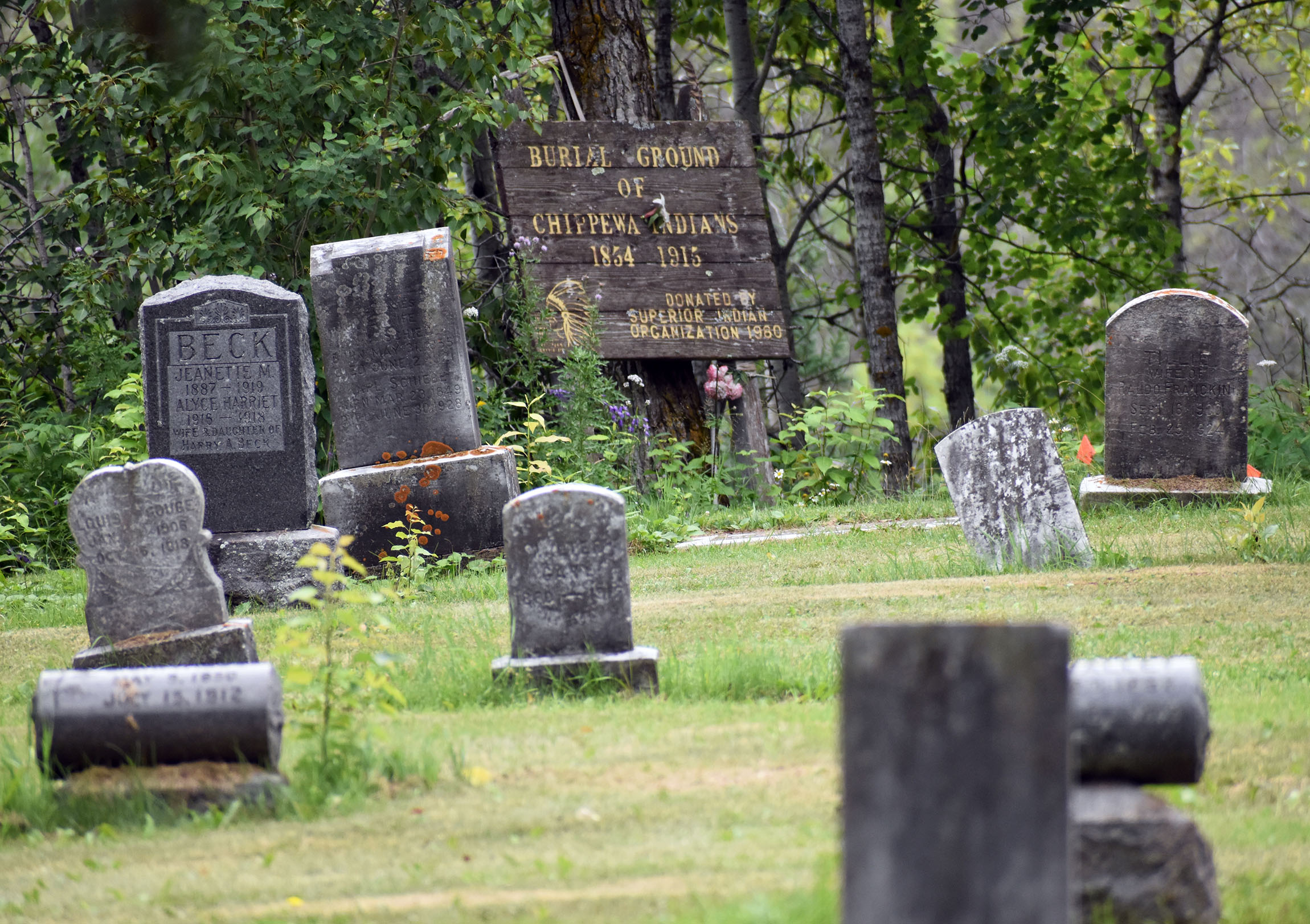
Dan Olson, an official with the Laborers’ International Union of North America in Duluth, told the Superior City Council on Tuesday that Duluth Mayor Roger Reinert would “take this plant any day of the week.”
A spokesperson for Duluth’s mayor said neither he nor the city has taken a position on the project, wishing Superior’s elected officials well as they make the best decision for their community.
The project has undergone multiple environmental reviews and legal challenges brought by Indigenous and environmental groups in Minnesota and Wisconsin. They’ve questioned the project’s effects on climate change and tribal communities.
The Sierra Club and Clean Wisconsin have appealed a Dane County judge’s ruling last year that upheld the project’s approval by the Public Service Commission. A decision is still pending in a Wisconsin appeals court.
Dairyland Power also wants to obtain a loan from the Rural Utilities Service to pay for half the project’s cost. A filing with the state earlier this year shows the plant still needs permits from state and federal agencies, but its owners say they have all necessary approvals with the exception of a wetlands permit from the U.S. Army Corps of Engineers. A Minnesota Power spokesperson said they expect the federal agency to grant a permit by the end of June.
Utilities have been hoping to begin construction this year and bring the plant online in 2028.
Wisconsin Public Radio, © Copyright 2025, Board of Regents of the University of Wisconsin System and Wisconsin Educational Communications Board.

